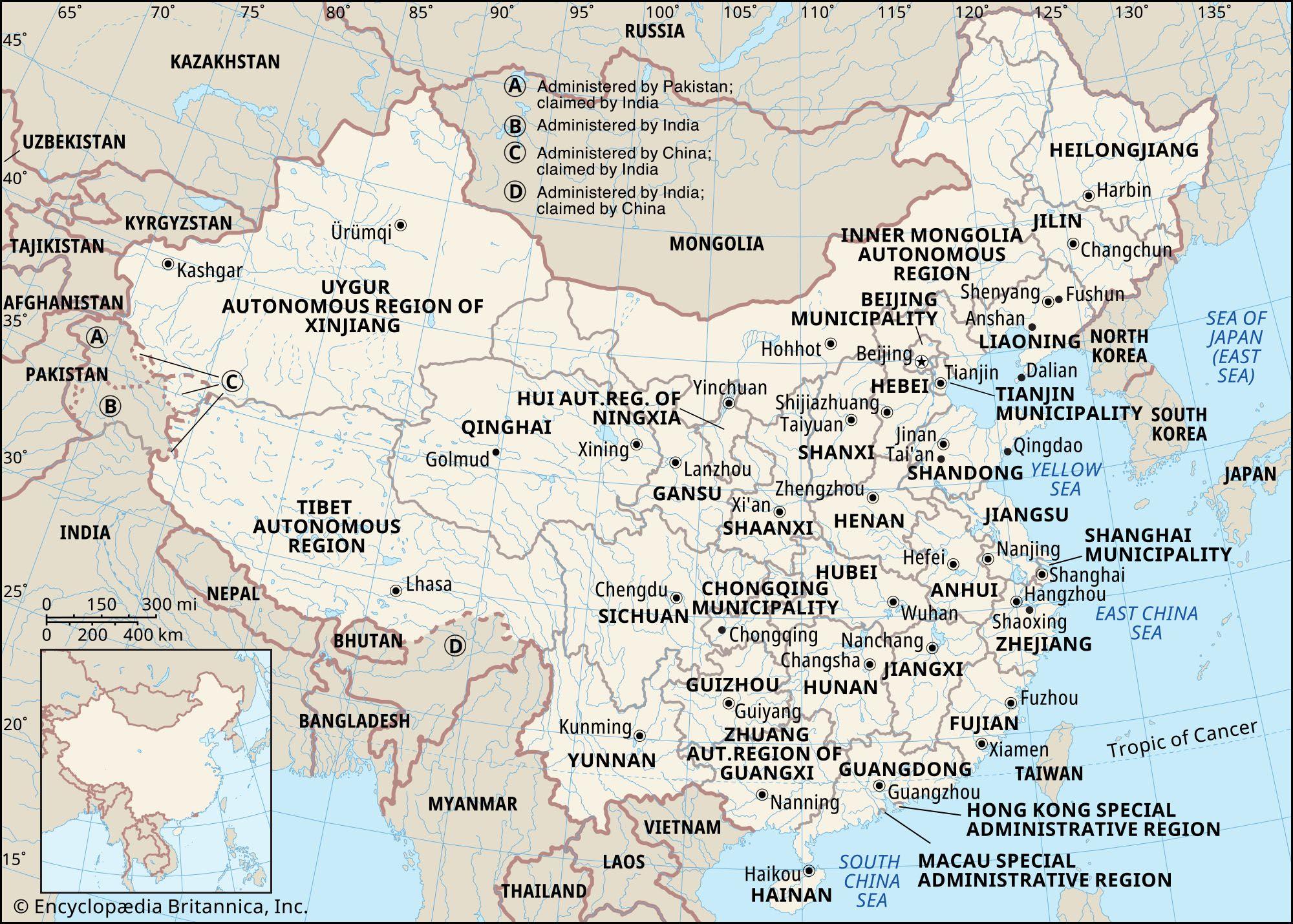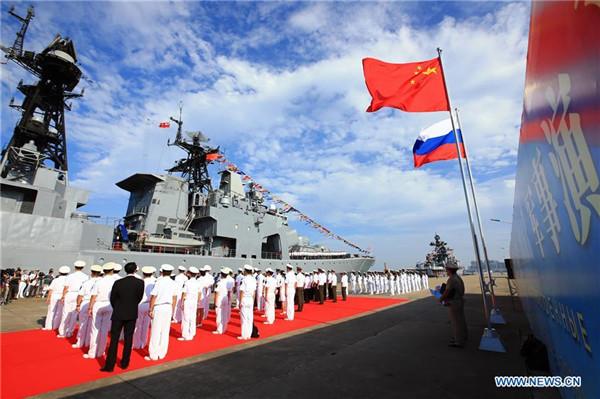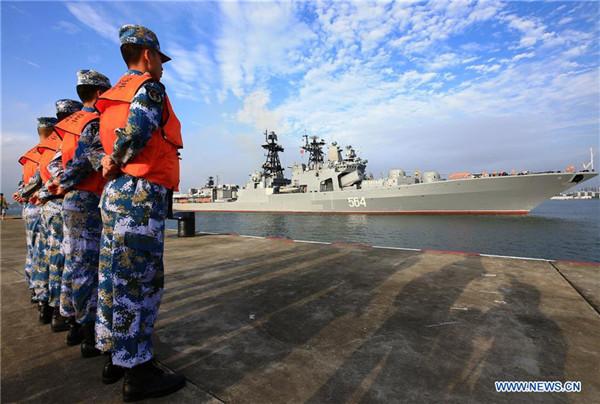China and Russia Strengthen Military Cooperation with Upcoming Naval Exercise
In a significant move reflecting deepening ties between the two nations, China and Russia are set to conduct a joint naval exercise in close proximity to Japan next month. This upcoming military engagement, which underscores a growing partnership between Beijing and Moscow, is anticipated to include an array of maritime operations aimed at enhancing interoperability between their naval forces. Notably, the exercise will focus on various tactical missions, allowing both countries to showcase their naval capabilities and strengthen their strategic coordination in the region.
The planned drill is expected to feature a range of activities,including:
- Artillery exercises showcasing advanced weapon systems.
- Search and rescue operations to improve maritime safety protocols.
- Anti-piracy drills to combat security threats in vital shipping lanes.
- Joint maneuvers that simulate real combat scenarios.
This joint effort not only signals a commitment to military collaboration but also raises eyebrows among regional allies and observers concerned about the implications for security dynamics in Northeast Asia. The timing of this exercise might potentially be seen as a strategic statement amid ongoing tensions between allied forces and their adversaries in the region.

Geopolitical Implications of Naval Drills Near Japan
The upcoming joint naval exercises between China and Russia, set to unfold in proximity to Japan, signal a strategic alignment that may have far-reaching consequences for the security dynamics in East asia. With both nations increasingly asserting their naval capabilities, this collaboration is seen as a direct challenge to U.S. influence in the region, particularly as tensions continue to simmer over territorial disputes in the South China Sea and the ongoing North Korean crisis.The collaboration not only illustrates a strengthening military partnership but also underscores the shared interests of Beijing and Moscow in countering what they perceive as Western hegemony.
Several implications emerge from these exercises that could reshape regional geopolitics:
- Increased Military Presence: The drills will enhance the operational capabilities of both navies, perhaps shifting the balance of power in the region.
- Japan’s Security Concerns: The proximity of the exercises raises alarms in Tokyo, prompting discussions about Japan’s defense strategies and potential military collaborations with allies, including the U.S.
- Regional Alliances: This event may spur neighboring countries, such as south Korea and Australia, to reconsider their defense postures and alliances in light of a more assertive China-Russia axis.
- Global Reactions: Reactions from the international community, especially from NATO and other Pacific nations, could lead to a reevaluation of maritime policies and strategies.

Regional Response: How Japan and Allies Are Prepared to React
As tensions escalate in the region with the upcoming joint naval exercises between China and Russia, Japan and its allies are stepping up their preparedness to counter any potential threats. Tokyo has been actively enhancing its maritime security measures, recognizing the strategic meaning of its surrounding waters. The Japanese Self-Defense Forces (SDF) are set to increase their vigilance in key areas, ensuring that they are ready to respond swiftly to any provocations. Additionally, Japan’s government has been engaging in high-level talks with the United States and other regional partners to bolster multilateral defense initiatives.
Crucial elements of Japan’s strategy include:
- Joint Military Drills: Japan plans to conduct joint exercises with U.S. naval forces, focusing on increased interoperability and rapid response capabilities.
- Intelligence Sharing: Enhanced collaboration with allies will include real-time intelligence sharing to monitor movements in the region effectively.
- Diplomatic Pressure: Japan will continue to engage in diplomatic channels aimed at discouraging aggressive maneuvers from China and Russia.
- Increased Defense Budget: The Japanese government is considering a significant increase in its defense budget to modernize its forces and improve its deterrent posture.
Furthermore, consultations with regional partners, including Australia and South Korea, are becoming increasingly vital in creating a united front against potential maritime threats. Japan’s commitment to maintaining peace and stability in the region underscores the importance of a coordinated response to any military developments stemming from the joint exercises, highlighting the ongoing shift in geopolitical dynamics in East Asia.

Insights into Maritime Strategy: Analyzing the Tactical Objectives of the Exercise
The upcoming joint naval exercise between China and Russia signals a significant shift in maritime strategy, particularly in the complex geopolitical waters surrounding Japan. Tactical objectives for this military operation may include:
- Strengthening Bilateral Relations: The exercise aims to enhance military cooperation and interoperability between the two nations, reinforcing their strategic partnership in the face of perceived Western encroachment.
- Demonstrating Naval Capability: by conducting operations in close proximity to Japan, China and Russia intend to showcase their naval strength and coordinated operational capabilities, potentially serving as a message of deterrence.
- Conducting Joint Tactical Maneuvers: The exercises will likely include complex naval maneuvers that test both nations’ abilities to operate seamlessly together, which could be critical in potential regional conflicts.
Additionally, this joint exercise can be viewed as a response to rising tensions in the Indo-Pacific region. Key features of the initiative may also encompass:
- Enhancing Maritime Security Cooperation: Both nations may seek to improve joint operational readiness to ensure the security of their maritime interests, especially concerning vital shipping lanes.
- Surveillance and Intelligence Gathering: The naval exercises could serve as a platform for gathering intelligence on the responses of neighboring countries, particularly Japan and its allies, as they closely monitor the developments.
- Testing National Defense Policies: This scenario provides an opportunity for both nations to gauge the effectiveness of their military strategies in a real-world environment,adjusting future policies based on observed outcomes.
